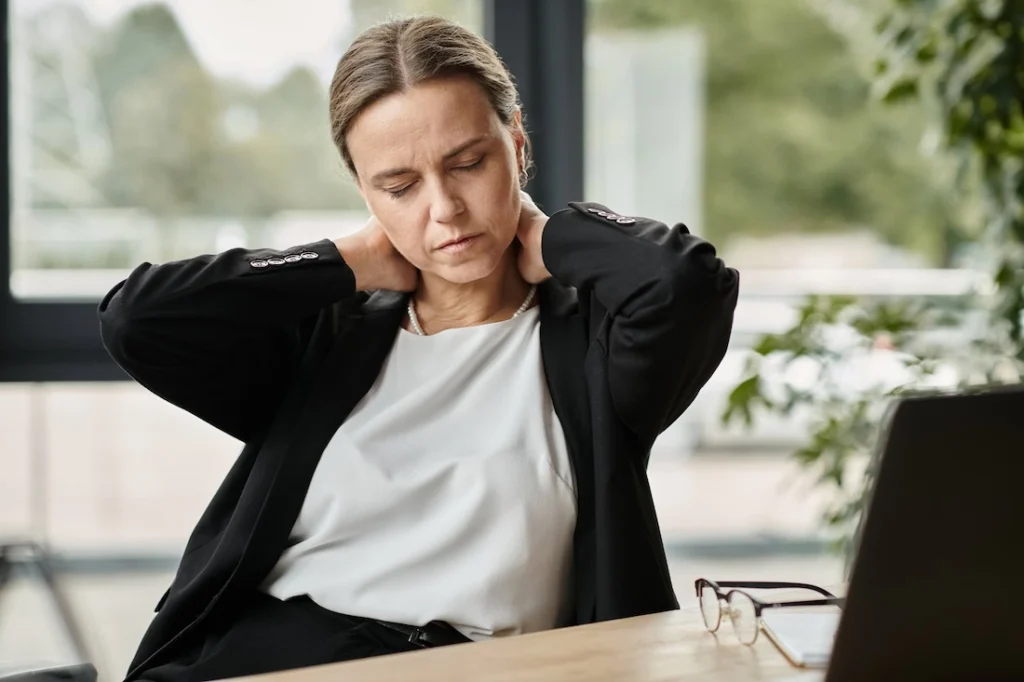The body naturally produces several neurotransmitters, one of which is opioids, and these interact with opioid receptors in the brain. The purpose is to regulate pain and emotion.
Today, opioids as prescription medications are used to manage and treat pain in a similar way but with higher potency compared to what the brain naturally produces.
Those who struggle with chronic pain are more likely to be prescribed opioids for part of their long-term pain management programs, and this means there is a higher link between chronic pain and opiate addiction.
Chronic Pain and Opioid Addiction
Addiction chronic pain-related figures have risen continually since the 1990s, when the opioid epidemic in the United States began. But why are rates of chronic pain and opiate addiction so high?
Chronic pain can refer to a condition that lasts several years but, in many cases, refers to conditions that last a lifetime. Not all cases of chronic pain have a resolution or a treatment option that can fix the symptoms.
This means individuals have to live with amplified and persistent pain signals that can significantly interfere with daily life. For example:
- Nerve pathways in those with chronic pain lead to higher pain perceptions even if there isn’t any physical damage to the body
- High sensitivity means that the nervous system becomes more responsive to pain signals, so even minor pain is perceived as severe
Depending on the type of chronic pain, an individual might suffer from what appears to be chronic nerve pain, high rates of discomfort throughout the brain and body that can’t be stopped with traditional treatment.
One of the biggest factors that influence the relationship between chronic pain and opioid addiction is that other pain medications, like over-the-counter medications, typically do not work on causes of chronic pain, and more importantly, even if they do, an individual who has to rely on the same medication throughout their lifetime will develop tolerance within a few years to the point that even basic prescriptions that are nonopioid medications will no longer suffice.
The Addiction Chronic Pain Relationship
Opioids are one of the best current treatment options we have in terms of pharmacological approaches to chronic pain management.
This means there is no medication more effective than prescription opioids at present.
Why?
Prescription opioids bind to the opioid receptors in the brain and help turn off or reduce the pain signals that are felt by the brain and the nervous system.
Unfortunately, as is the case with any other medication, the more an individual uses that medication, the more the body develops a tolerance to it. Those who are given a prescription opioid for a temporary amount of pain, such as recovery from surgery, might only need it for a few weeks or months, but someone who has chronic pain might need it throughout their lives.
This longevity means that they are at a higher likelihood of developing tolerance and subsequent addiction.
When this happens, the addiction chronic pain relationship makes it such that an individual relies on opioids alone to help manage their pain and get them through the day.
Opioid Treatment with Casa Serena
Studies indicate that women are more sensitive to pain compared to men. This means women are more likely to suffer from chronic pain, be prescribed opioids, and develop an addiction to prescription opioids.
At Casa Serena, we offer opioids rehab for women, programs taught for women, by women. With our opioid treatment program, you will start with supervised detox that includes medication necessary for comprehensive recovery. We keep you under constant supervision so that you are never alone, your vitals are continually monitored, and medications are prescribed where necessary to keep you comfortable.
As you transition from your detox program into the rest of your rehab treatment, you will have a chance to work with our team of specialists through individual and group therapy sessions. During your stay you will have a chance to contribute to the facility, working together with other clients, participating in holistic care programs backed by science.
We know how difficult recovery from opioid addiction can be especially if you are dealing with chronic pain. That’s why our programs are aimed at offering alternative ways to manage chronic pain through things like lifestyle adjustments and therapy.
Contact our team today to start your treatment for opioid addiction.



